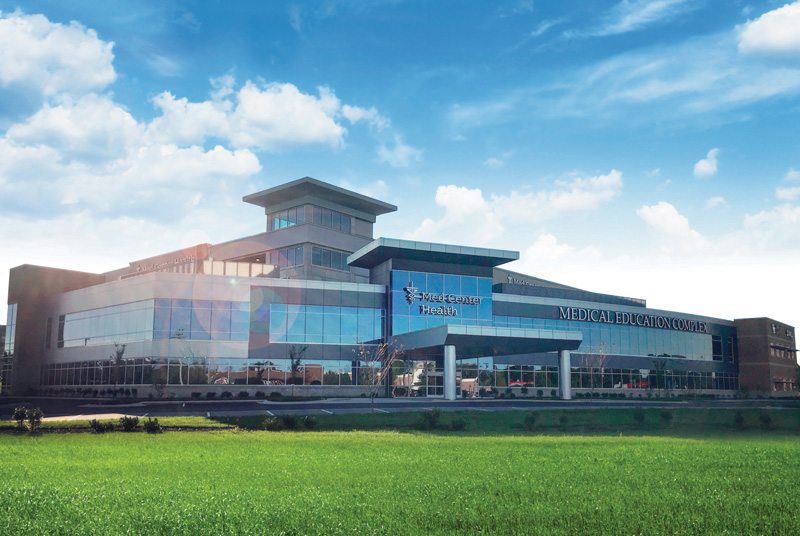At the UK College of Medicine, we embrace our responsibility to drive the change and the discovery required to improve health and wellness across the state. As a recognized leader in biomedical research, we focus on innovative, transformative, and collaborative discoveries from the bench to the bedside. Through this approach, the institution is training our learners to become physicians who align evidence-based practice with the delivery of advanced clinical care.
Our objective is to advance transformative research through collaboration and innovation – leading to scientific impact and improved health for all. With faculty among the best in the nation – in the classroom, in the clinical setting, and in labs and research facilities – we are primed to accomplish this goal. The college is taking further action by investing in its infrastructure to support medical student research with plans to hire an associate dean for medical student research later this year.
“Even though I’m at a regional campus, the College of Medicine has made access to the main campus and the various research projects they have to offer easy,” shared Logan Elliot, a rising fourth-year student in Bowling Green. “In addition to research opportunities, the college has fostered this excellent environment of collaboration between clinical departments and regional campus students, allowing us to easily rotate with, and learn from, attending physicians in Lexington.”
Elliot worked with Sanford Archer, MD, professor of otolaryngology, and Logan Fluty, MD, a resident in the department. “When I met Dr. Fluty, I expressed interest in helping with ENT research,” shared Elliot. “He reached out immediately to share projects I could jump into.”
He shares that both mentors have offered continuous support throughout this process and were “readily available to answer any questions or to discuss what was going on.” Their guidance has not only facilitated Elliot’s academic growth but also nurtured his ability to conduct clinical research.
Justin Ma, a third-year medical student at our Bowling Green Campus, was inspired to pursue medicine after witnessing his father experience a stroke during childhood. He recalls the effect the event had on his family, noting “it opened my eyes to how someone’s health could not only impact their own well-being, but also really affect the people around them.”
Ma has been conducting neuroscience research under the mentorship of Jill Roberts, PhD, assistant professor of neurosurgery and neuroscience, and Justin Fraser, MD, associate professor of cerebrovascular, endovascular, and skull base surgery, both of whom call Lexington home.
Much of Dr. Roberts’ research focuses on Moyamoya, a disease most commonly found in East Asian populations. Moyamoya Syndrome, its non-idiopathic counterpart, is abnormally prevalent in Appalachia. Under the guidance of Drs. Roberts and Frazer, Ma has been working to identify biomarkers crucial for early detection and management.
“Dr. Roberts has been very understanding of my schedule as a medical student and has been very proactive about finding ways that I can help out from Bowling Green,” he shared. “She has given me many opportunities to learn new lab skills and is always supportive of me presenting at local conferences.”
Ma’s research experience was further enhanced by the Center for Clinical and Translational Science’s Professional Student Mentored Research Fellowship (PSMRF). During the summer between his M1 and M2 years, Ma was able to travel to Lexington and continue his research in person in the lab alongside Dr. Roberts.
Meghan Walker Urhahn, also a third-year student in Bowling Green and PSMRF recipient, was drawn to research and science to enhance rural care. At a young age, her father was diagnosed with cancer and had to travel hours away from their rural home of Paducah, Ky. for treatment. The long commutes to distant hospitals for specialized care inspired Urhahn to become the physician her parents needed when she was younger.
“When applying for medical school, I wanted to attend a school that would help me become more than just a physician; I wanted to be a rural physician,” shared Urhahn.
Under the mentorship of Martha Tillson, PhD, a research scientist with UK’s Center on Drug and Alcohol Research (CDAR), and Michele Staton, PhD, professor of behavioral science and faculty associate of CDAR, Urhahn’s passion for rural health has continued to flourish. Their guidance has been instrumental in her growth as a researcher, from learning basic research skills to presenting her findings at conferences, including the Kentucky Rural Health Association’s annual meeting.
“Despite the distance between Lexington and Bowling Green, they were always accessible for me to ask questions, receive feedback, and teach me new things,” expressed Urhahn. “Through Zoom, we had regular meetings and were able to work through statistics as if I was in the room.”
Her research project focused on health care disparities among incarcerated women with opioid use disorder. This project, part of the National Institute on Drug Abuse (NIDA)-funded Justice Community Opioid Innovation Network, highlighted how health care utilization patterns correlate with county health rankings and physician-to-population ratios. Urhahn’s findings underscore the critical need for tailored health care policies to address the specific needs of vulnerable populations.
“In Bowling Green, I’ve been given opportunities to learn from physicians in rural areas, work with faculty who research health disparities, and attend classes that focus on being aware of patients' external circumstances,” shared Urhahn. “Because of this, I feel that no matter the specialty I choose, I will be prepared to return home to western Kentucky and be the best rural physician I can be for my patients.”
